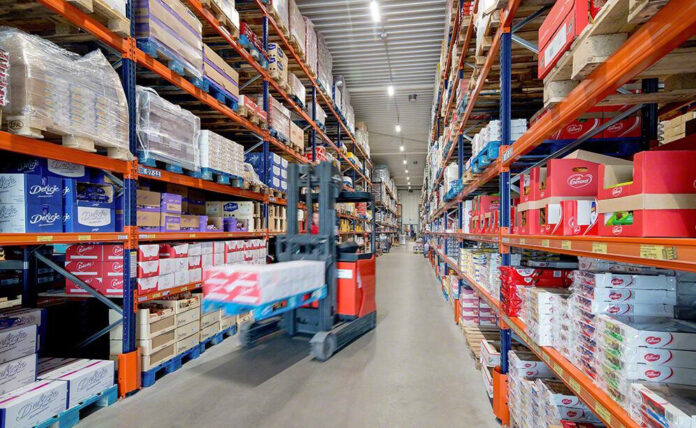Building such relationships takes time, effort, and a thoughtful approach. It requires a deep understanding of your supplier’s needs, a commitment to clear and open communication, and a dedication to maintaining consistency in your dealings. Throughout this comprehensive guide, we will delve into these critical elements, offering practical insights and strategies to help you navigate the intricate terrain of wholesale food supply relationships successfully.
By embracing these principles and practices, you can create long-lasting bonds with your wholesale food suppliers and secure the foundation for sustained growth and prosperity in the dynamic and ever-evolving food industry.
Understanding Your Supplier’s Needs

To build a robust and mutually beneficial relationship, it is paramount to understand your wholesale food supplier’s needs, objectives, and constraints. This understanding lays the foundation for a partnership built on empathy and cooperation.
Take the time to delve into their business model, challenges, and priorities, and actively listen to their concerns. Knowing what matters most to your suppliers will enable you to tailor your approach to meet and exceed their expectations, fostering goodwill and trust.
Clear and Transparent Communication
Effective communication is the bedrock of any successful relationship. To maintain a strong connection with your wholesale food suppliers, strive for open and transparent communication channels. Discuss your expectations, delivery schedules, quality standards, and any potential issues promptly and honestly.
Establishing a feedback loop ensures that both parties are on the same page, creating opportunities for continuous improvement. Regularly check in with your suppliers to ensure everything runs smoothly, and address any concerns proactively.
Consistency in Orders and Commitments
Consistency is the lifeblood of trust in business relationships. If you want your wholesale food suppliers to prioritize your orders and provide you with favorable terms, it’s imperative to demonstrate a consistent and reliable ordering pattern.
Erratic or unpredictable orders can strain your relationship and make it challenging for suppliers to plan their production, allocate resources, and manage inventory effectively. By upholding your commitments and maintaining a steady demand, you become a valued and dependable partner in their eyes.
Timely Payments

Paying your bills punctually is a sign of professionalism and respect. Late payments can cause financial stress for your suppliers, disrupt their cash flow, and may ultimately lead to strained relationships.
To prevent this, establish a reliable payment system that ensures your suppliers receive their dues on time. By prioritizing timely payments, you maintain the trust and integrity of your relationship and position yourself as a preferred customer.
Fair and Ethical Negotiation
Negotiation is inherent in business interactions, but it’s crucial to approach it with fairness and ethics in mind. Strive for win-win situations where you and your supplier benefit from the arrangement.
Overly aggressive negotiation tactics can damage trust and harm the long-term prospects of your relationship. Remember that long-term partnerships should be based on mutual respect and growth.
Quality Assurance and Improvement
In the food industry, consistent product quality is paramount. Collaborate closely with your wholesale food suppliers to establish and uphold stringent quality control standards. Regular inspections, feedback, and quality audits should be integral to your partnership.
Provide constructive feedback to help suppliers continuously improve their products and processes. A steadfast commitment to quality satisfies your customers and builds trust and reliability with your suppliers.
Developing Personal Relationships

Building personal relationships with your suppliers can be as important as professional connections. Attend industry events, trade shows, and conferences to meet your suppliers face-to-face.
These personal interactions can help solidify your bond, make your relationship more resilient, and provide opportunities for brainstorming and problem-solving outside the typical business environment.
Staying Informed About Market Trends
The food industry is dynamic and subject to continuous changes. Staying informed about market trends, regulatory developments, and emerging technologies that could impact your business and your supplier’s operations is essential.
Sharing this knowledge with your suppliers demonstrates your commitment to mutual success and positions you as a valuable partner who can adapt to the evolving landscape together.
Collaborative Product Development
Collaborate with your wholesale food suppliers on product development initiatives. Share your market insights, customer feedback, and innovation ideas to help them create products that align with consumer preferences and market demands. A strong partnership in innovation can set you apart from competitors and deepen your relationship, as both parties work together to explore new opportunities and meet evolving consumer needs.
Resolving Issues Amicably

Conflict is inevitable in any business relationship. When issues arise, address them promptly and amicably. Seek mutually agreeable solutions through constructive dialogue rather than confrontation or legal actions. Handling conflicts respectfully demonstrates your commitment to preserving the partnership and can often lead to stronger ties after overcoming challenges.
Planning for Long-Term Sustainability
Building enduring relationships with wholesale food suppliers calls for a forward-thinking perspective beyond immediate gains. It’s essential to steer clear of decisions driven solely by short-term advantages, as such choices may jeopardize the integrity and longevity of your supplier relationships down the road. Instead, adopt a strategic outlook that encompasses your partnership’s long-term sustainability and resilience.
Give thought to the ever-evolving market dynamics and industry trends. Acknowledge that change is inevitable and that flexibility is key to thriving in the food industry. Prepare to pivot and grow with your suppliers, leveraging their expertise and resources to adapt to shifting consumer preferences, technological advancements, and regulatory developments.
A commitment to enduring collaboration is not just about the present; it’s a promise to work hand-in-hand toward mutual success in the dynamic and competitive landscape of the future.
Expressing Gratitude
Never underestimate the power of expressing gratitude in business relationships. Take the time to thank your wholesale food suppliers for their dedication and hard work. Simple gestures like thank-you notes or small tokens of appreciation can go a long way in nurturing a positive and enduring relationship. These expressions of gratitude reinforce the partnership and acknowledge the value both parties bring to each other’s success.
Conclusion
Building long-term relationships with wholesale food suppliers is a multifaceted endeavor that demands commitment, understanding, and dedication. By comprehensively addressing the key aspects discussed in this guide, you can establish partnerships built on trust, mutual benefit, and longevity. Remember that these relationships are not merely transactions but collaborations that contribute significantly to the success and sustainability of your business in the dynamic and ever-evolving food industry.









